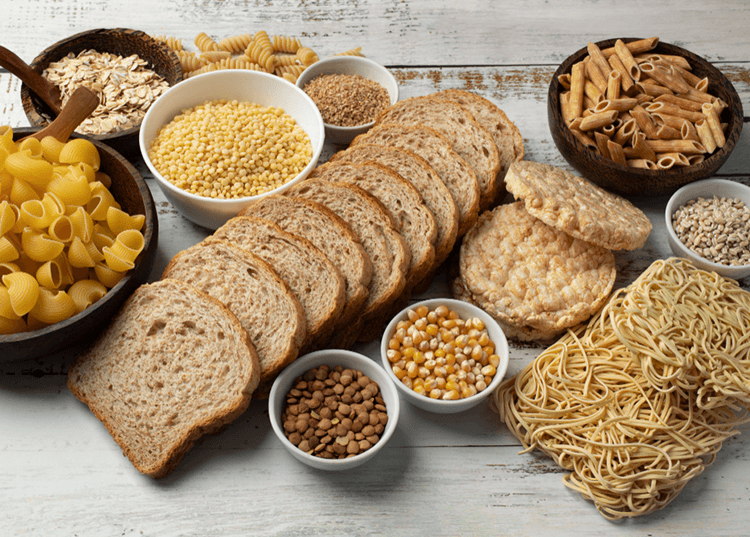- +033 2572 7171
- info@dhanvantary.com

4.5 Rating | 4500 Review

4.5 Rating | 4500 Review
Carbohydrates serve as the primary energy sources for the body. Classified as macronutrients, they are essential for energy production. There are three distinct categories of carbohydrates: sugars, starches, and fibers, each derived from various food sources.
These carbohydrates supply glucose, which the body converts into energy to facilitate physiological functions and physical activities. They constitute a fundamental component of a balanced diet.

Carbohydrates can be obtained from a wide range of food sources. A diet rich in carbohydrates is considered a healthy diet.
Carbohydrates serve as a primary source of energy for the body and the central nervous system, facilitating various bodily functions. The key roles of carbohydrates in the body are outlined as follows:
Carbohydrates are classified into three primary categories as follows:
This is the most basic form of carbohydrate, naturally occurring in fruits, vegetables, and dairy products. Examples of sugars include table sugar (sucrose), fruit sugar (fructose), and milk sugar (lactose).
Although not digestible by the body, fiber is essential for maintaining overall health. It plays a crucial role in supporting a healthy digestive system and preventing constipation. Fruits and vegetables are the primary sources of dietary fiber.
This complex carbohydrate is composed of long chains of sugar units. Starch is present in various vegetables such as potatoes, beans, peas, and corn, as well as in bread, cereals, and grains.
Carbohydrates offer numerous health benefits. The advantages of carbohydrates for your well-being include:
Carbohydrates are vital for optimal mental health and contribute to memory function.
They assist in weight gain when necessary and help maintain a healthy weight.
Foods such as green leafy vegetables, sweet potatoes, and fruits like apples and berries provide excellent nutritional benefits.
The fiber component of carbohydrates aids in lowering cholesterol levels, thereby enhancing heart health.
The human body functions akin to a machine that requires adequate fuel for movement, with carbohydrates serving as this essential fuel source. A deficiency in carbohydrates can lead to various symptoms, particularly due to insufficient glucose reaching the central nervous system. Common manifestations include dizziness and weakness, which may be experienced both physically and mentally. This lack of glucose is medically referred to as hypoglycemia.
In the absence of carbohydrates, the body resorts to utilizing stored proteins for energy. This process can place significant stress on the kidneys, as the byproducts of protein metabolism are more taxing to eliminate compared to those derived from carbohydrates.
Moreover, inadequate intake of carbohydrates and fiber can lead to digestive issues.
The necessity for carbohydrates varies based on individual activity levels.
